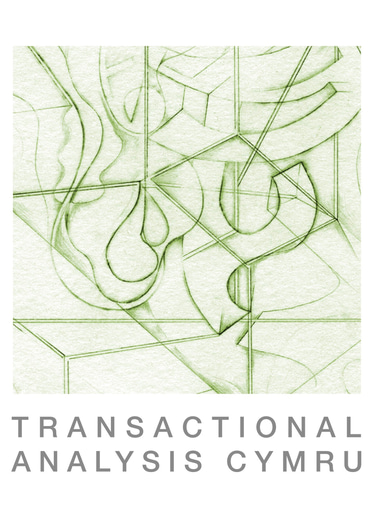
Hiraeth
Belonging and Longing - a Transactional Analysis perspective.
Why Hiraeth?
Hiraeth is a Welsh word that has no direct translation for the English. Talking to a Welsh colleague, she explained that the word had many implications…
Longing
Belonging
Loss of belonging
Yearning to belong
To return home
To return to the past.
Being rooted in history and place and tribe.
Yearning for this.
Hiraeth is a word that combines both people and place - and describes the pull and push of an intense attachment to both. My colleague explained this is a double edged sword… on the one hand her culture has a deep rooted sense of connection, bound by hiraeth, this is a gift. On the other there is a price to this, that of the need to individuate to experience autonomy- hiraeth pulls you back.
I'm English - how is this relevant?
I am an English woman who has moved around the world. I was pulled to Pembrokeshire with my husband and daughter 25 years ago. I mean pulled - the three of us were searching for home - we weren't sure what this meant. Driving over the Preselli hills in the slanting sunlight of late October - my body recognised something. There was never any choice, my road through Germany, New York, California and London ended here. We settled and rooted in Tycanol woods on the edge of the hills we first drove over. My husband described his experience of the place as 'ancient remembering' as though he had always been here. A man who doesn't often cry, he was moved to tears. For all the years we have been here, he walks through those woods, creating new tracks - his marks of belonging to this place. The moment I found our old farm house, and walked through the ancient woodland, I knew that I wanted to bring others into the place - to create a place of belonging. Tycanol seemed too profoundly beautiful and healing not to share.
To begin with I started my practice here as a psychotherapist. Then when I qualified as a trainer and supervisor in transactional analysis I was able to continue to fulfil this early promise to myself. I started teaching local people transactional analysis psychotherapy in a training institute registered with the UKCP. Over time others have felt the pull to come to Pembrokeshire and train here, in this land, with themselves, with me, with each other. This gathering of people and land has become Transactional Analysis Cymru. Hiraeth, I think is at work.
What is relevant about this story about my journey to Tycanol, Wales and Transactional Analysis?
Well, to begin with I had a lot to learn about being English in Wales, about the challenges of individuation, differentiation and belonging. Culture is an important and imbedded part of our psyche, something that can both bring us together and divide us. Deeper than this is our relationship to the land we attach to. In Wales I experienced an extraordinary pull to bed down and belong. This has been both in relationship to the land and the people here. At times this is both a delight and also a challenge. My clients, supervisees and trainees come from different intersectional meetings of different experiences of land and culture - the one that I am thinking about here is how my Englishness makes contact with the Welsh roots and frames of reference of some of the people I work with.
Autonomy and Hiraeth
The sense of autonomy and individuality is something that as an English born person, I take for granted.
Before moving to Pembrokeshire, I rarely felt I belonged, or felt rooted. I was entitled, adrift and alone.Talking to my colleague, I recognised how I have been changed by Pembrokeshire - how a deep sense of belonging had seeped into my bones. Now I too experience the movement of moving away to embrace self and being pulled back by hiraeth.
In my time in Wales I have had the honour of working with many Welsh people. I recognise the double aged sword my colleague was describing. The need to individuate and the fear of losing 'belonging' can result in anxiety and depression, low self-esteem - or self-esteem that is dependent always on being part of the tribe.
I have had to learn to tread lightly, to question my privilege and assumptions at every turn. A farmer's daughter who can't challenge her father because she might lose the farm; a son trapped in the family business and afraid to admit his sexuality to his parents; a daughter in law, lost in the powerful tribal identity of her husbands farm, where her mother in law rules. There is also the hidden level, where my roots in imperialism meet my welsh colleagues experience of being continually at war and defeated, then colonised and oppressed by the English. It is still happening as more and more houses are bought up for holiday homes. I too have to remember that I have also 'moved in' and am teaching some of my students in their second language.
It is not a simple task to support the individual voice to emerge - as a therapist I have to account everything that will be lost - and the implications of this. In training as well, my students will be changed over the four year process. How does this also cause them to loose the belonging they had had with their families that do not go through the same process of change?
Another part of this is how I watch our children (born in Pembrokeshire) leave to find themselves away from West Wales, only to be pulled back home. I see the restlessness of hiraeth again at work here. Though their blood is English, they have become imbued by the spirit of the place, and find that however far they travel they are pulled back.
So important that we honor both our need to be different and to belong. To acknowledge deep pulls of our ancestral and cultural as well as environmental tidal pulls. These are so deep we don’t even know they exist as they emerge from the source of our trans-generational identity.For now I accept this pull. I am of this place.
